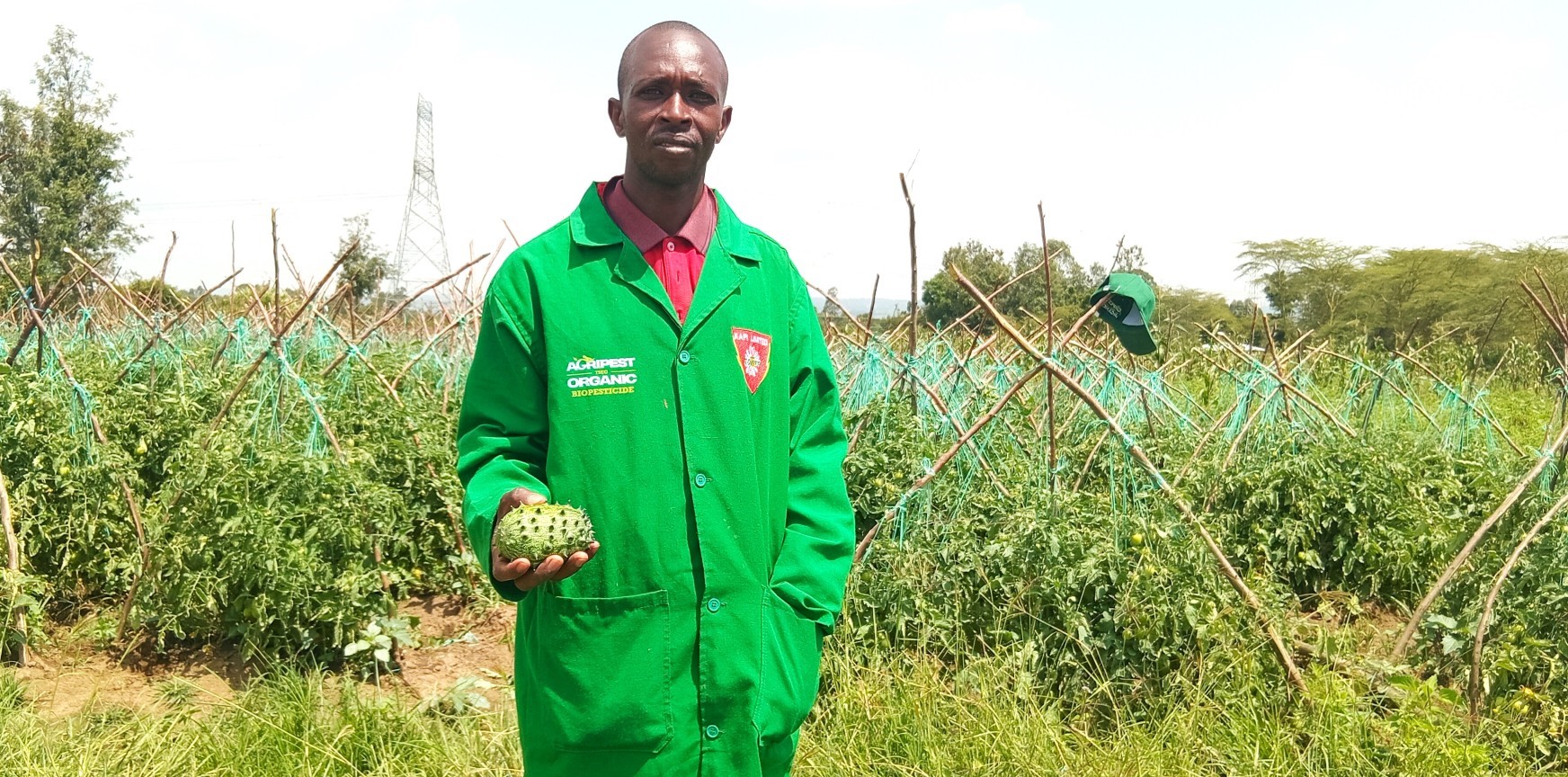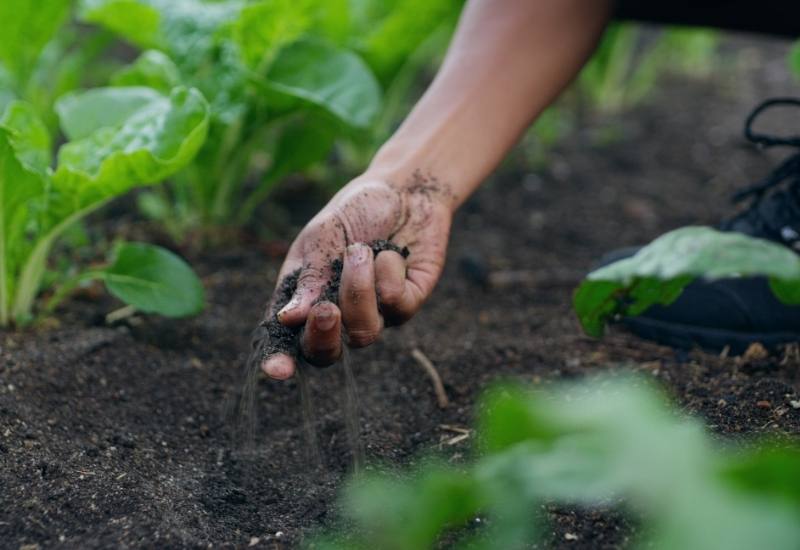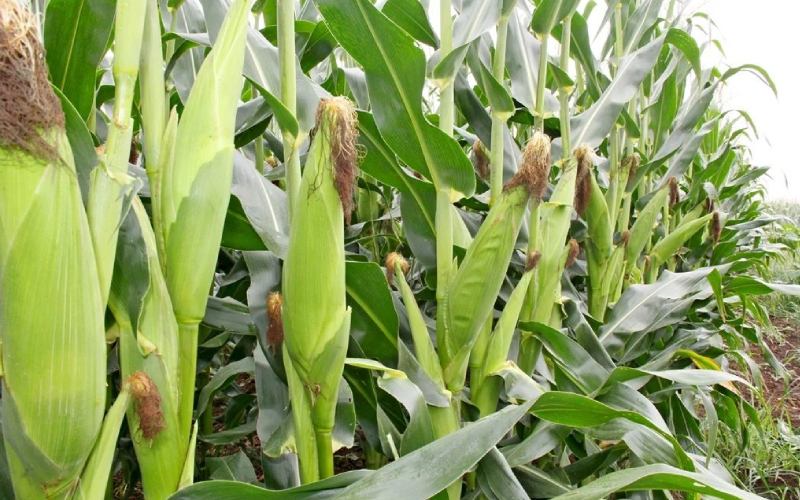- Dickson Rotich one of the agronomists under KAPI limited says farmers in Nakuru county have embraced the biopesticide well because of its unique qualities and affordable price when compared to other pesticides in the market.
It is midmorning in Rongai subcounty, and Belbur a small village approximately 2.5 kilometers from Simba Cement company off Nakuru Eldoret highway, welcomes us with refreshing air and weaverbirds chirps.
In one of the homesteads, five women are busy tending to green kales plantation. This is Geoffrey Bii’s farm, where he practices mixed organic farming divided into portions over these 4 acres of land.
His farm teems with life, the clear deep green color of indigenous vegetables, Courgettes, Maize, Kales and Tomatoes, is a testament to what good farm management can do.
Mr Bii says in a world where healthcare is expensive and elusive, health must start from the farmer; that is why he embraced safe organic farming and is always very careful with the choice of pesticides to be used. He points out Agripest Organic 75EC biopesticide as one of his best choices in his venture.
“I started using Agripest Organic 75EC biopesticide around 9 months ago and I have not regretted it; it has served me extremely well compared to other chemical based pesticides available in the market,” Bii says as he wears a smile.
Read More
He says he prefers this biopesticide because it is natural, it is made by croton megalocarpus seed oil which is very safe for humans, it has a Pre- Harvest Interval of 24 hours meaning that a farmer can harvest or consume farm products safely one day after spraying.
“Comparing to other farmers that are using chemical based pesticides, which have a week Post-Harvest Interval, I harvest my crops thrice, earning me more income.” He says as he laughs.
Agripest Organic 75EC is a farming biopesticide product manufactured by Kapi limited, a Kenyan company in Nakuru county. The company supports thousands of farmers in the country who receive farming training and advice from company agronomists.
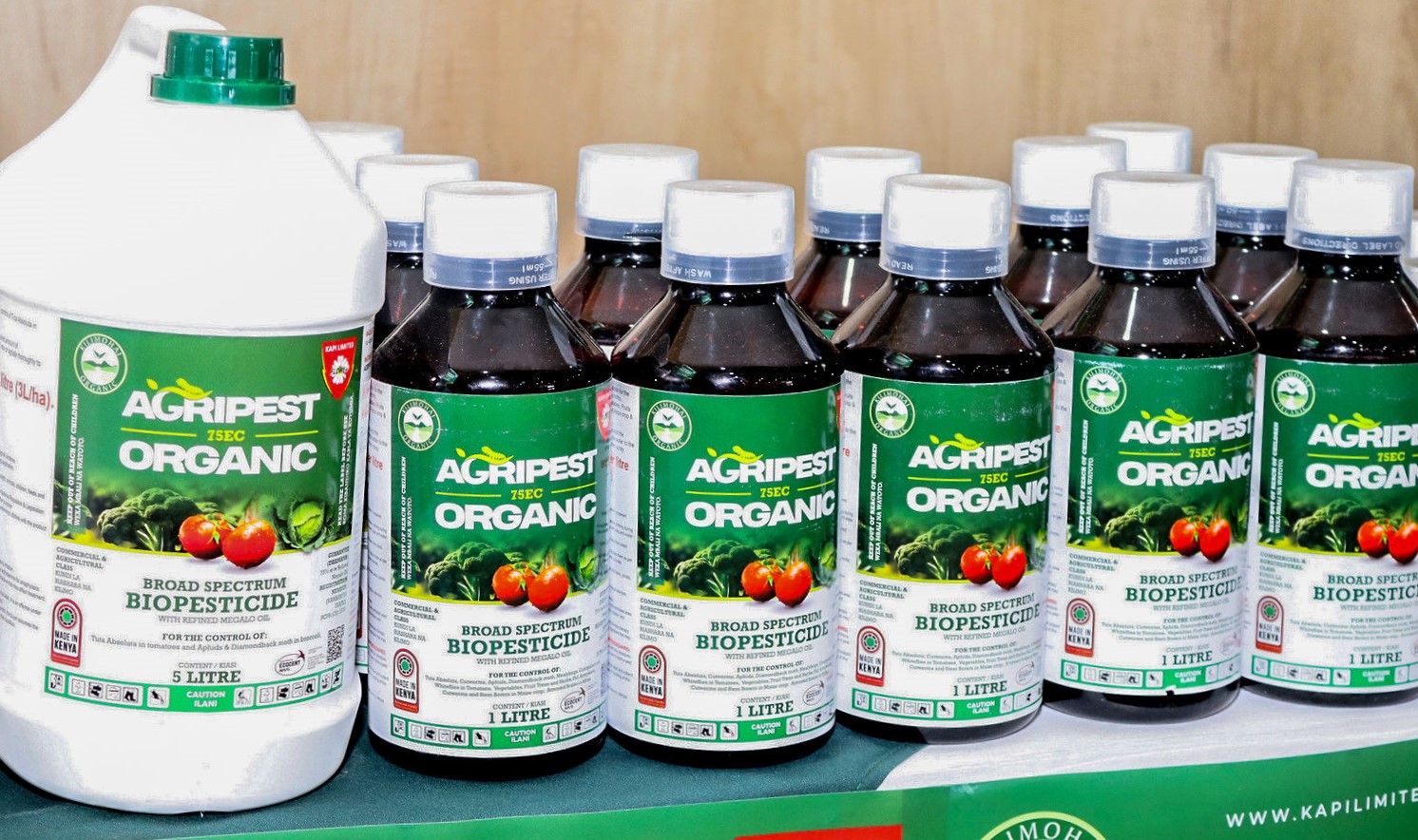
Dickson Rotich one of the agronomists under KAPI limited says farmers in Nakuru county have embraced the biopesticide well because of its unique qualities and affordable price when compared to other pesticides in the market.
“They like it because of its 1 day Pre harvest interval, with zero residue left. Meaning it is one of the safest biopesticides on the shelf today,” Rotich says.
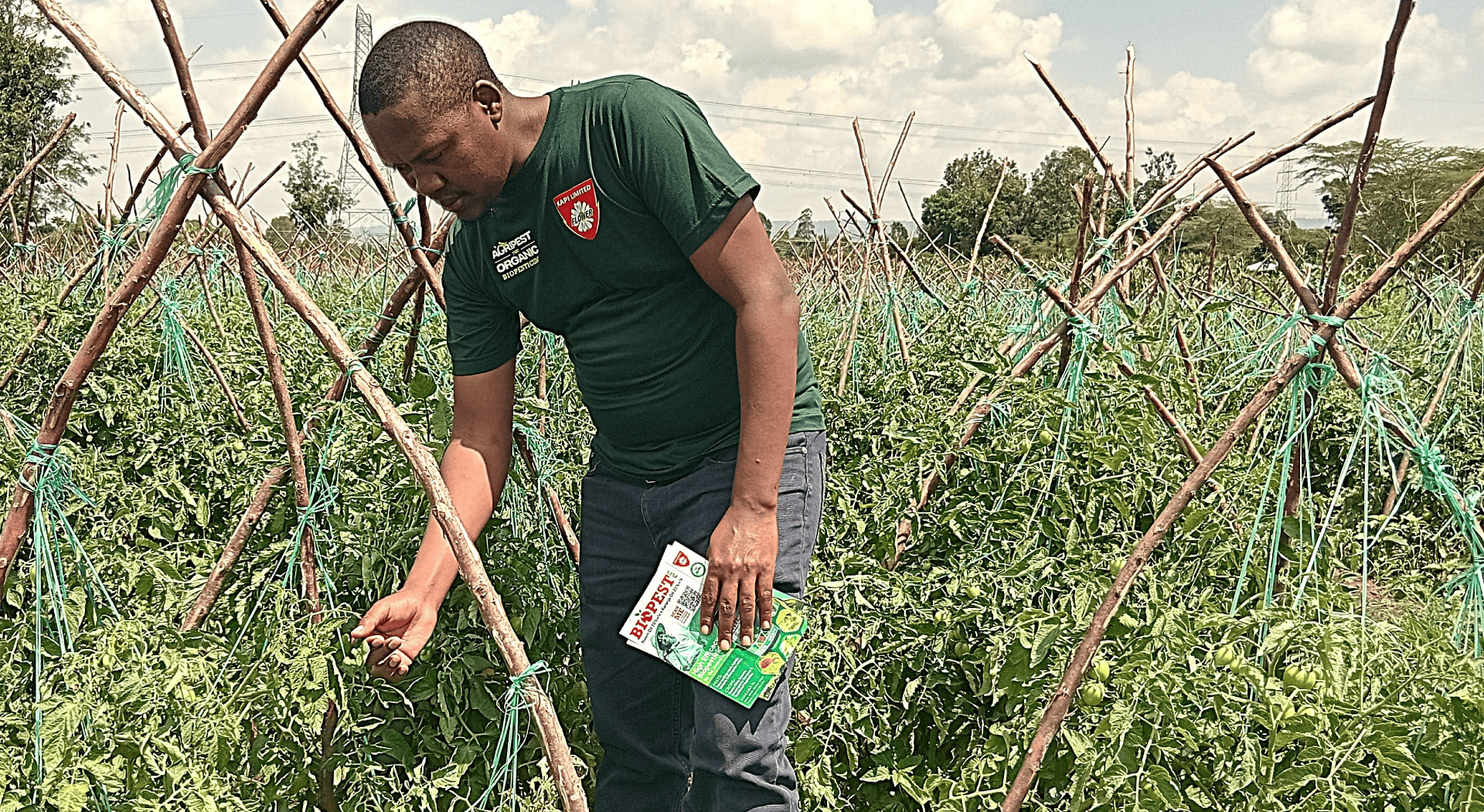
Rotich is currently working with several farmers across Nakuru and Baringo county including Marigat, Olenguruone, with not less than 100 of them in each area.
Agripest biopesticide come in the wake of growing concern from farm produce consumers of the safety of the products. With many of the most recent ailments attributed to the chemical residue on farm produce, biopesticides have come as savior in the rapid changing world of consumer awareness.
Ian Shaw the managing director of KAPI limited says that for a long time, small holder farmers have been grappling with chemical residues on their farm produce, which is exactly what Agripest biopesticide comes to solve.
“Our biopesticides are certified by Ecocert meaning that products sprayed with them are acceptable globally,” Ian says.
He says that it has taken 8 years of research to develop and come up with Agripest 75EC -a biopesticide that is both efficient and affordable to the local small-scale farmer.
Research by The Route to Food Initiative (RFTI) an organization that advocates for the right to food in Kenya, states that in the year 2020 highly hazardous pesticides accounted for over 75 percent of the total pesticide volume in Kenya and nearly half were substances already banned in the EU due to their risks to health and the environment.
Kenya is particularly vulnerable to the dangers of extremely toxic pesticides since there are few or no effective measures and resources available to reduce the impacts of exposure.
Buffer zones are not practicable for preventing harmful pesticide runoff or drift into neighboring residences, schools, or waterways due to the size and placement of agricultural farms.
Only 15% of Kenyan farmers, according to research by the Green life crop protection Africa, use full protective gear when applying pesticides due to a variety of factors, such as climate, cost, or lack of availability.
Human rights to a healthy environment, sufficient food, safe drinking water, and good health can all be severely impacted by exposure to dangerous pesticides.
The Pest Control Products Board released new rules on July 10, 2023, which restricted the use of nine active chemicals. Four active chemicals that were listed in the civil society submission for 2021—pyrethroid, thiacloprid, chlorothalonil, and chlorpyrifos—are limited or prohibited from usage in the EU under the new laws.
The introduction of a range of safe, effective and affordable biopesticides, giving farmers the choice of safe food production could not be more needed or more welcome at this time.

